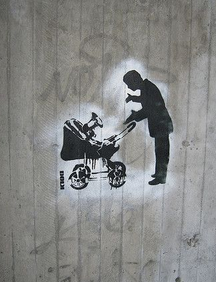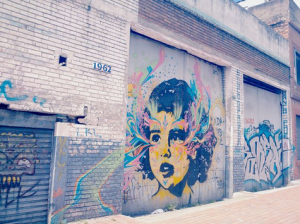
The “Unspoken Problem” in Education
(Originally published in Psychology Today Dec. 10, 2013)
I will jump in the deep end and state: the core issue in education is ageism. A child’s individual voice, needs and methodologies are not recognized as valid solely based on age. Children are at the mercy of others interpreting, controlling and dictating their path.
This is why it is impossible to get everyone on the same page about ‘success,’ curriculum and methodologies because we are not treating those directly affected as equals.
People try and control the unknown.
The future is unknown.
Children embody the future.
The idea is not revolutionary. In our life-cycle, we will all experience ageism, perpetuate it and then experience it again. It is a vicious cycle of control, protection, distrust, ‘best interest at heart,’ and ‘we know better.’ The revolution is stopping the cycle. Not watering it down to a more bearable degree, as we’ve done for generations, but stopping it outright.“More and more, I have come to believe that the greatest reform required in our schools is the abolition of that chasm between young and old which perpetuates paternalism. Such dictatorial authority gives a child an inferiority that persists throughout life; as an adult, he merely exchanges the authority of the teacher for that of the boss.” (A. S. Neill, Summerhill’s founder)
I believe, on a visceral level, adults remember how wrong it felt to experience ageism. Freedom taken away—bit by bit or in distinct moments—by those older than us. We remember.
But mixed with time and resignation, this memory can be heard as, “I turned out okay, so it must not have been that bad.” Yes, we did turn out okay, meaning we survived, because children are resilient. But let’s not confuse the issue. We did not prosper because of this control, but rather in spite of it. We learned as children how to survive in a world that rewards conformity and maturity. We learned how to read the signs, obey those in power and get around arbitrary rules by any means necessary. We found ways to exist inside a system that did not value us as people with purpose, self-knowledge and inherent skills to navigate within the world. We did all this with the primal instinct to survive.
That survival is largely based on our inclusion in our community. We are social animals. We need each other. Rebelling against the community can have life or death consequences at certain stages of our lives.
Unfortunately, needing help is often interpreted as weakness in our culture. Weakness is equated with low-status. Thus children, even though they are in fact, evolutionarily speaking, the next and more refined level of our species, are looked at as low-status. And as we have witnessed throughout history, those labeled ‘low-status’ are the most threatened to be denied basic human rights… The most basic, the right to be free.
“I doubt there has ever been a human culture, anywhere, at any time, that underestimates children’s abilities more than we North Americans do today. Our underestimation becomes a self-fulfilling prophecy, because by depriving children of freedom, we deprive them of the opportunities they need to learn how to take control of their own behavior and emotions.” (Peter Gray, Free to Learn)
In order to understand the world, children perpetuate ageism through modeling. They start daydreaming of the day they get out of this low-status prison with ‘When I grow up…’, ‘When I live in my own house…’ and ‘When I have kids….’ A glimmer of hope for when they are in control of their own lives.
The ripple effect is felt in all aspects of our lives becoming part of our ‘natural’ vocabulary, a lens in which we view the world. Parallels are seen in styles of business management, art creation, religion and politics. It is our earliest lesson that we interpret, challenge, embody and translate into other mediums.
So what is the alternative? Trust and equality. They are the biggest risks with the most rewards. A community message to children, saying:
As Peter Gray put in Free to Learn, “You are competent. You have eyes and a brain and can figure things out. You know your own abilities and limitations. Through play and exploration you will learn what you need to know. Your needs are valued. Your opinions count. You are responsible for your own mistakes and can be trusted to learn from them. Social life is not the pitting of will against will, but the helping of one another, so that all can have what they need and most desire. We are with you, not against you.”
A community of adults who love, trust and respect children. A community who believes that caring for someone means being present and available without dictating and mapping out their path.
With hope, I am addressing that which feels horrible and shameful: ageism and controlling children. I do it myself, it is a struggle in class, a struggle in my home, but how else do we change if not to call a spade a spade? How can we evolve unless we let go of shame and acknowledge past injustices and false beliefs?
I propose a litmus test for the education revolution. (Caution: even though it feels like it holds room for grey areas, it is strictly yes or no.)
“Do you believe that children know themselves better than we know them?”
Answer. Sit with it. Ask yourself why.
Ask your student or child. Ask why. Listen.
The revolution is here.
